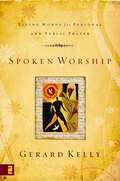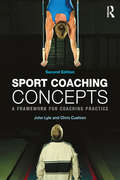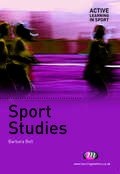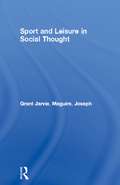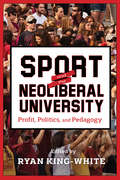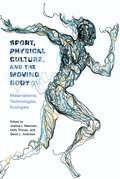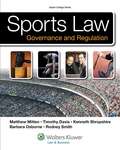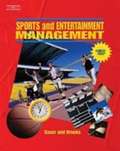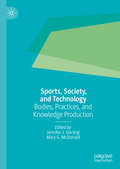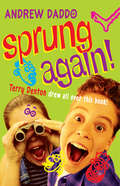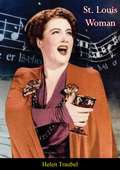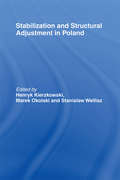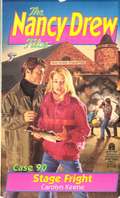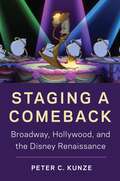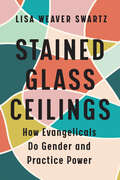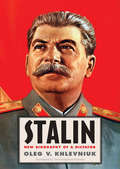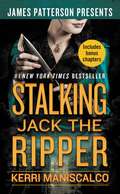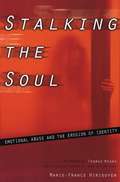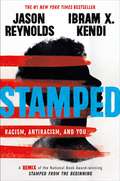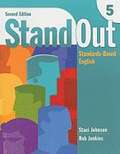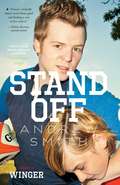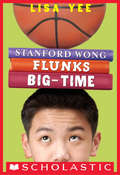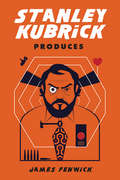- Table View
- List View
Spoiled
by Jessica Morgan Heather CocksSixteen-year-old Molly Dix has just discovered that her biological father is Brick Berlin, world-famous movie star and red-carpet regular. Intrigued (and a little terrified) by her Hollywood lineage, Molly moves to Los Angeles and plunges headfirst into the deep of Beverly Hills celebrity life. Just as Molly thinks her life couldn't get any stranger, she meets Brooke Berlin, her gorgeous, spoiled half sister, who welcomes Molly to la-la land with a smothering dose "sisterly love"...but in this town, nothing is ever what it seems. Set against a world of Redbull-fuelled stylists, tiny tanned girls, popped-collar guys, and Blackberry-wielding publicists, Spoiled is a sparkling debut from the writers behind the viciously funny celebrity blog GoFugYourself.comHeather Cocks is a die-hard sports fan, a Leo, an ex-reporter, a Notre Dame grad, a dual citizen of the U.S. and U.K., a sandwich enthusiast, and a former producer for America's Next Top Model. Jessica Morgan is a Southern California native and UCLA alumna who has produced reality shows ranging from Growing Up Gotti to the docu-series 30 Days. She collects shoes, books, and unpaid parking tickets. Both ladies live in Los Angeles and watch almost everything on the CW.Together, Heather and Jessica skewer celebrity fashion crimes on their popular blog, Go Fug Yourself, which draws millions of monthly readers and made Entertainment Weekly's Must List. Their dispatches from the front rows are routinely the most-read pieces on New York magazine's Web site during Fashion Week. This is their first novel for young adults.
Spoken Worship
by Gerard KellySpoken worship … is poetry of the soul, reaching out to the soul’s greatest lover. Where deep calls to deep, spoken worship heeds the call. Spoken Worship is written with the conviction that the spoken word has a unique power – power to reach into the heart, power to transport us to where we could not otherwise go and transform us into what we would not otherwise become. The forty poems in this collection go beyond image and emotion. They are created to be not merely read silently but spoken aloud in a way that brings both the speaker and all who listen into a fresh new experience of worship. With performance notes for each of its eight sections that offer insights into the why as well as the how of spoken worship, this book is designed for use in every setting: church services, home groups, personal times with God, hospital rooms – any and every circumstance in which human hearts long to engage with a passionate, deeply loving God who formed us to feel and to respond to him with emotion.
Sport Coaching Concepts: A framework for coaching practice
by Chris Cushion John LyleCoaching is a vital factor for success in sport at all levels. Sport Coaching Concepts offers a comprehensive introduction to the theoretical issues that underpin sport coaching practice. Now in a fully revised and updated new edition, it explains why a conceptual approach to sport coaching is more important than ever before, using practice-orientated analysis to help students develop a full understanding of coaching theory and technique. Drawing on more than a decade’s worth of research, the book reflects upon the profound changes that have transformed coach education and development. It covers all the key topics of the sport coaching curriculum and includes six new chapters on the evolution of coaching theory, coaching expertise, decision making, social perspectives on the coach–athlete relationship, social inclusion and principles of coach development. Each chapter contains a full range of pedagogical features to aid learning, including discussion questions, practical projects, guides to further reading, case studies and insights from practising coaches. Sport Coaching Concepts is essential reading for all students of sport coaching and any serious coaches looking to develop their own coaching practice.
Sport Studies (Active Learning in Sport Series)
by Barbara Bell"A comprehensive, useful and informative practical book that draws from a range of disciplines. In particular, the learning activities provides some useful group and reflective discussions." - Heather Allison, London Metropolitan University "This book supports our year undergraduate students. The case studies and links with UK programmes provides relevant information to discuss and investigate. Easily accessible." - Emerick Kaitell, Roehampton University This is an accessible and comprehensive introductory textbook for students on sport studies courses. It brings together perspectives drawn from a range of disciplines, especially sociology, history and philosophy, with detailed information on the key political, legal, economic and vocational issues relating to sport. Written specifically for students based in the UK, the text examines the full range of topics relevant to sport studies and is fully supported with learning activities, suggestions for further study, and guidance on how to progress and succeed in the subject.
Sport and Leisure in Social Thought
by Grant Jarvie Joseph MaguireThis much needed book examines all of the major traditions of social thought to clearly show their influence in our understanding of sport and leisure.
Sport and the Neoliberal University: Profit, Politics, and Pedagogy
by Susan Searls Giroux Joshua I. Newman Michael D. Giardina Ryan King-White Henry Giroux Neal C. Ternes Jaime DeLuca Callie Batts Maddox Matthew G. Hawzen Lauren C. Anderson Ellen J. Staurowsky Richard M. Southall Crystal Southall Oliver Rick Adam Beissel Jacob J. Bustad Ronald L. MowerCollege students are now regarded as consumers, not students, and nowhere is the growth and exploitation of the university more obvious than in the realm of college sports, where the evidence is in the stadiums built with corporate money, and the crowded sporting events sponsored by large conglomerates. The contributors to Sport and the Neoliberal University examine how intercollegiate athletics became a contested terrain of public/private interests. They look at college sports from economic, social, legal, and cultural perspectives to cut through popular mythologies regarding intercollegiate athletics and to advocate for increased clarity about what is going on at a variety of campuses with regard to athletics. Focusing on current issues, including the NCAA, Title IX, recruitment of high school athletes, and the Penn State scandal, among others, Sport and the Neoliberal University shows the different ways institutions, individuals, and corporations are interacting with university athletics in ways that are profoundly shaped by neoliberal ideologies.
Sport, Physical Culture, and the Moving Body: Materialisms, Technologies, Ecologies (Critical Issues in Sport and Society)
by David Andrews Samantha Frost Simone Fullagar Mary Louise Adams Samantha King Pirkko Markula Michael D. Giardina Matthew G. Hawzen Oliver Rick Jacob J. Bustad Richard Pringle Mary G. McDonald Kiri Baxter Douglas Booth Kyle S Bunds Mariana Clark Simon C Darnell Jennifer Sterling Christopher McLeod Shannon Leigh Jette Katelyn Esmonde Carolyn Pluim Gavin WeedonThe moving body—pervasively occupied by fitness activities, intense training and dieting regimes, recreational practices, and high-profile sporting mega-events—holds a vital function in contemporary society. As the body moves—as it performs, sweats, runs, and jumps—it sets in motion an intricate web of scientific rationalities, spatial arrangements, corporate imperatives, and identity politics (i.e. politics of gender, race, social class, etc.). It represents vitality in its productive and physiological capacities, it drives a complex economy of experiences and products, and it is a meaningful site of cultural identities and politics. Contributors to Sport, Physical Culture, and the Moving Body work from a simple premise: as it moves, the material body matters. Adding to the burgeoning fields of sport studies and body studies, the works featured here draw upon the traditions of feminist theory, posthumanism, actor network theory, and new materialism to reposition the physical, moving body as crucial to the cultural, political, environmental, and economic systems that it constitutes and within which is constituted. Once assembled, the book presents a study of bodies in motion—made to move in contexts where technique, performance, speed, strength, and vitality not only define the conduct therein, but provide the very reason for the body’s being within those economies and environments. In so doing, the contributors look to how the body moving for and about rational systems of science, medicine, markets, and geopolity shapes the social and material world in important and unexpected ways. In Sport, Physical Culture, and the Moving Body, contributors explore the extent to which the body, when moving about both ostensibly active body spaces (i.e., the gymnasium, the ball field, exercise laboratory, the track or running trail, the beach, or the sport stadium) and those places less often connected to physical activity (i.e. the home, the street, the classroom, the automobile), is bounded to technologies of life and living; and to the political arrangements that seek to capitalize upon such frames of biological vitality. To do so, the authors problematize the rise of active body science (i.e. kinesiology, sport and exercise sciences, performance biotechnology) and the effects these scientific interventions have on embodied, lived experience. Contributors to Sport, Physical Culture, and the Moving Body will be engaging a range of new and emerging theoretical perspectives, including new materialist, political ecology, developmental systems theory, and new material feminist approaches, to examine the actors and assemblages of movement-based material, political, and economic production. In so doing, contributors will vividly and powerfully illustrate the extent to which a focus on the fleshed body and its material conditions can bring forth new insights or ontological and epistemological innovation to the sociology of sport and physical activity. They will also explore the agency of the body as and amongst things. Such a performative materialist approach explicates how complex assemblages of sport and physical activity—bringing into association everything from muscle fibers and dietary proteins to stadium concrete or regional aquifers—are not only meaningful, but ecological. By focusing on the confluence of agentive materialities, disciplinary technologies, vibrant assemblages, speculative realities, and vital performativities, Sport, Physical Culture, and the Moving Body promises to offer a groundbreaking departure from representationalist tendencies and orthodoxies brought about by the cultural turn in sport and physical cultural studies. It brings the moving body and its physics back into focus: recentering moving flesh and bones as locus of social order, environmental change, and the global political economy.
Sports Law: Governance and Regulation
by Rodney Smith Kenneth Shropshire Timothy Davis Matthew J. Mitten Barbara OsborneFrom coaches' and layers' legal contracts, to regulatory issues of race, gender, safety, and more -- Sports Law: Governance and Regulation covers the full range of topics for both amateur and professional sports.<P> By the authors of the best-selling law school casebook Sports Law and Regulations: Cases, Materials, and Problems, Sports Law: Governance and Regulation is authoritative and timely. Examples, cases, and problem exercises accessibly convey the role of law and policy in a variety of settings and from a variety of perspectives -- players', managers', coaches', and society's.
Sports and Entertainment Management
by Ken Kaser John R. Brooks Jr.Learn marketing and business management while focusing on sports with SPORTS AND ENTERTAINMENT MANAGEMENT. This marketing and business management textbook uses topics in the sports and entertainment industries to cover the basic functions of management as outlined in national and state standards. Along the way, you'll also discover powerful information about leadership, finance, product and people management, customer relations, sales, and much more.
Sports, Society, and Technology: Bodies, Practices, and Knowledge Production (Critical Issues In Sport And Society Ser.)
by Jennifer J. Sterling Mary G. McDonaldSports, Society, and Technology: Bodies, Practices, and Knowledge Production addresses the complex entanglements of science, technology, and sporting cultures. The collection explores themes around human and non-human actants, knowledge formations and processes, and the materiality and multiplicity of bodies through an engagement with the interdisciplinary fields of Sport Studies and Science and Technology Studies. Representing a range of methodological, theoretical, and disciplinary approaches, contributors interrogate the social, cultural, political, and historical intersections of an ever-expanding techno-scientific sporting landscape – from true bounce and brain trauma to exercise physiology, metrics, and esports, and from feminist technoscience, whey protein, and epigenetics to sickle cell screening and testosterone regulation.
Sprung Again!
by Andrew DaddoFergus Kipper is at it again. This guy is a case study in: how to be a champion at everything from smelling to spelling; delivering a baby in the front seat of a car; driving like a winner (and not like your dad!); and busting your older sister with her boyfriend. Another wicked collection of short stories from the bestselling author of SPRUNG!, WRITING IN WET CEMENT and CREEPY COOL.
St. Louis Woman (Opera Biographies Ser.)
by Helen Traubel Richard G. HublerThis charming autobiography captures the life story of a fascinating woman: a Missouri girl-turned-world-class soprano who remained true to her roots through it all.Born and reared in St. Louis and proud of her origins, Helen Traubel grew up in a modest German-American family. She spent her teens and twenties singing with church choirs and quartets in the city, studying under first- rate teachers. She did not leave Missouri for New York until she was in her early thirties. Although she replaced the great Kirsten Flagstad at the Metropolitan Opera, she refused to confine herself to singing before elite crowds and prided herself on reaching a larger, more general audience via nightclubs, radio, television, and theater.St. Louis Woman is filled with candid and amusing stories as full of zest as Traubel herself. One such story details her audition for the Ford Hour, during which she suffered a terrible case of poison ivy, and the booth technicians interrupted her performance with laughter. Furious, she announced she would sing no more and started to leave. Without explanation, the technicians asked her to continue. Traubel later discovered that the higher-ups had called down to the technicians demanding they stop playing the Flagstad record and let that kid sing.The qualities that made Traubel such a notable individual are captured in this entertaining book. Her strong, independent character shines through. Outspoken and at times brutally honest, Traubel recounts her experiences at the Met, as both a popular performer and a teacher. She tells of exasperating moments when she was coaching famous pupil Margaret Truman. This is not a fact-laden examination of the singer’s Wagnerian repertory or a study of high opera; rather this engaging book introduces the reader to a nationally renowned performer who, despite her unmatched talent, retained her hometown identity and lived her life as a St. Louis woman.
Stabilization and Structural Adjustment in Poland
by Henryk Kierzkowski Marek Okolski Stanislaw WelliszThe Solidarity-led government which came into power in Poland in Autumn 1989 faced two enormous tasks. First, to stabilize an economy prone to hyperflation. Second, to replace a crumbling command system in favour of a market mechanism, in a country whose market institutions had been destroyed under forty years of communist rule. This book recounts the events of this period and the course taken by the new government, and analyzes the significance of this for the transition process in Poland and elsewhere.
Stage Fright (Nancy Drew Files #90)
by Carolyn KeeneThe producers of a huge new Broadway musical are worried about their star, who has been receiving death threats. When she gets sick right before opening night, her understudy has to go on for her—and nearly dies in an “accident” on stage. So the producers call in the Hardy Boys to get to the source of the trouble.Baffled by all the backstage backstabbing, the Hardys call in Nancy Drew for help. When she arrives, they realize that Nancy is a dead ringer for the lead actress, so they arrange for her to replace the injured understudy.Can the three supersleuths put an end to the accidents plaguing the show? Or is the curtain about to come down once and for all?
Staging a Comeback: Broadway, Hollywood, and the Disney Renaissance
by Peter C. KunzeIn the early 1980s, Walt Disney Productions was struggling, largely bolstered by the success of its theme parks. Within fifteen years, however, it had become one of the most powerful entertainment conglomerates in the world. Staging a Comeback: Broadway, Hollywood, and the Disney Renaissance argues that far from an executive feat, this impressive turnaround was accomplished in no small part by the storytellers recruited during this period. Drawing from archival research, interviews, and textual analysis, Peter C. Kunze examines how the hiring of theatrically trained talent into managerial and production positions reorganized the lagging animation division and revitalized its output. By Aladdin, it was clear that animation—not live action—was the center of a veritable “renaissance” at Disney, and the animated musicals driving this revival laid the groundwork for the company’s growth into Broadway theatrical production. The Disney Renaissance not only reinvigorated the Walt Disney Company but both reflects and influenced changes in Broadway and Hollywood more broadly.
Stained Glass Ceilings: How Evangelicals Do Gender and Practice Power
by Lisa Weaver SwartzStained Glass Ceilings speaks to the intersection of gender and power within American evangelicalism by examining the formation of evangelical leaders in two seminary communities.Southern Baptist Theological Seminary inspires a vision of human flourishing through gender differentiation and male headship. Men practice “Godly Manhood," and are taught to act as the "head" of a family, while their wives are socialized into codes of “Godly Womanhood" that prioritize prescribed gender roles. This power structure privileges men yet offers agency to their wives in women-centered spaces and through marital relationships. Meanwhile, Asbury Theological Seminary promises freedom from gendered hierarchies. Appealing to a story of gender-blind equality, Asbury welcomes women into classrooms, administrative offices, and pulpits. But the institution’s construction of egalitarianism obscures the fact that women are rewarded for adapting to an existing male-centered status quo rather than for developing their own voices as women. Featuring high-profile evangelicals such as Al Mohler and Owen Strachan, along with young seminarians poised to lead the movement in the coming decades, Stained Glass Ceilings illustrates the liabilities of white evangelical toolkits and argues that evangelical culture upholds male-centered structures of power even as it facilitates meaning and identity.
Stalin: New Biography of a Dictator (The\yale-hoover Series On Authoritarian Regimes Ser.)
by Oleg V. KhlevniukAn engrossing biography of the notorious Russian dictator by an author whose knowledge of Soviet-era archives far surpasses all others.Josef Stalin exercised supreme power in the Soviet Union from 1929 until his death in 1953. During that quarter-century, by Oleg Khlevniuk&’s estimate, he caused the imprisonment and execution of no fewer than a million Soviet citizens per year. Millions more were victims of famine directly resulting from Stalin&’s policies. What drove him toward such ruthlessness? This essential biography offers an unprecedented, fine-grained portrait of Stalin the man and dictator. Without mythologizing Stalin as either benevolent or an evil genius, Khlevniuk resolves numerous controversies about specific events in the dictator&’s life while assembling many hundreds of previously unknown letters, memos, reports, and diaries into a comprehensive, compelling narrative of a life that altered the course of world history. In brief, revealing prologues to each chapter, Khlevniuk takes his reader into Stalin&’s favorite dacha, where the innermost circle of Soviet leadership gathered as their vozhd lay dying. Chronological chapters then illuminate major themes: Stalin&’s childhood, his involvement in the Revolution and the early Bolshevik government under Lenin, his assumption of undivided power and mandate for industrialization and collectivization, the Terror, World War II, and the postwar period. At the book&’s conclusion, the author presents a cogent warning against nostalgia for the Stalinist era. &“This brilliant, authoritative, opinionated biography ranks as the best on Stalin in any language.&”—Martin McCauley East-West Review&“A historiographical and literary masterpiece.&”—Mark Edele, Australian Book Review&“A very digestible biography, yet one packed with revelations.&”—Paul E. Richardson, Russian Life Magazine
Stalin: The Court of the Red Tsar (Orion 20th Anniversary Editions Ser.)
by Simon Sebag MontefioreThis widely acclaimed biography provides a vivid and riveting account of Stalin and his courtiers--killers, fanatics, women, and children--during the terrifying decades of his supreme power. In a seamless meshing of exhaustive research and narrative ?lan, Simon Sebag Montefiore gives us the everyday details of a monstrous life.We see Stalin playing his deadly game of power and paranoia at debauched dinners at Black Sea villas and in the apartments of the Kremlin. We witness first-hand how the dictator and his magnates carried out the Great Terror and the war against the Nazis, and how their families lived in this secret world of fear, betrayal, murder, and sexual degeneracy. Montefiore gives an unprecedented understanding of Stalin's dictatorship, and a Stalin as human and complicated as he is brutal.From the Trade Paperback edition.otov, Beria and Yezhov among them-the author sheds new light on the oligarchy that attempted to create a new world by exterminating the old. He gives us the details of their quotidian and monstrous lives: Stalin's favorites in music, movies, literature (Hemmingway, The Forsyte Saga and The Last of the Mohicans were at the top of his list), food and history (he took Ivan the Terrible as his role model and swore by Lenin's dictum, "A revolution without firing squads is meaningless"). We see him among his courtiers, his informal but deadly game of power played out at dinners and parties at Black Sea villas and in the apartments of the Kremlin. We see the debauchery, paranoia and cravenness that ruled the lives of Stalin's inner court, and we see how the dictator played them one against the other in order to hone the awful efficiency of his killing machine.With stunning attention to detail, Montefiore documents the crimes, small and large, of all the members of Stalin's court. And he traces the intricate and shifting web of their relationships as the relative warmth of Stalin's rule in the early 1930s gives way to the Great Terror of the late 1930s, the upheaval of World War II (there has never been as acute an account of Stalin's meeting at Yalta with Churchill and Roosevelt) and the horrific postwar years when he terrorized his closest associates as unrelentingly as he did the rest of his country.Stalin: The Court of the Red Tsar gives an unprecedented understanding of Stalin's dictatorship, and, as well, a Stalin as human and complicated as he is brutal. It is a galvanizing portrait: razor-sharp, sensitive and unforgiving.From the Hardcover edition.
Stalking Jack the Ripper: Booktrack Edition (Stalking Jack the Ripper #1)
by Kerri ManiscalcoThis #1 New York Times bestseller and deliciously creepy horror novel has a storyline inspired by the Ripper murders and an unexpected, blood-chilling conclusion. Includes exclusive alternate POV bonus chapters! Seventeen-year-old Audrey Rose Wadsworth was born a lord's daughter, with a life of wealth and privilege stretched out before her. But between the social teas and silk dress fittings, she leads a forbidden secret life. Against her stern father's wishes and society's expectations, Audrey often slips away to her uncle's laboratory to study the gruesome practice of forensic medicine. When her work on a string of savagely killed corpses drags Audrey into the investigation of a serial murderer, her search for answers brings her back to her own sheltered world. The story's shocking twists and turns, augmented with real, sinister period photos, will make this dazzling, #1 New York Times bestselling debut from author Kerri Maniscalco impossible to forget.
Stalking The Soul: Emotional Abuse and the Erosion of Identity
by Thomas Moore Marie-France Hirigoyen Helen MarxIn this groundbreaking account, Dr. Hirigoyen lays bare the destructive "hidden" phenomenon of emotional abuse, analyzing the psychology of abusers and their victims as well as the dynamic between them. In the end, she offers practical advice on how to break free of abuse's vicious hold.
Stamped: A Remix of the National Book Award-winning Stamped from the Beginning
by Jason Reynolds Ibram X. KendiThe crucial, empowering, #1 New York Times bestselling exploration of racism—and antiracism—in America.This is NOT a history book.This is a book about the here and now. A book to help us better understand why we are where we are.A book about race. The construct of race has always been used to gain and keep power, to create dynamics that separate and silence. This remarkable reimagining of Dr. Ibram X. Kendi's National Book Award-winning Stamped from the Beginning reveals the history of racist ideas in America and inspires hope for an antiracist future. It takes you on a race journey from then to now, shows you why we feel how we feel, and why the poison of racism lingers. It also proves that while racist ideas have always been easy to fabricate and distribute, they can also be discredited. Through a gripping, fast-paced, and energizing narrative written by beloved award-winner Jason Reynolds, this book shines a light on the many insidious forms of racist ideas--and on ways readers can identify and stamp out racist thoughts in their daily lives. Download the free educator guide here: https://www.hachettebookgroup.com/wp-content/uploads/2020/03/Stamped-Educator-Guide.pdfNow available for younger readers: Stamped (for Kids): Racism, Antiracism, and You
Stand Out 5: Standards Based English
by Rob Jenkins Staci JohnsonBuilt from the standards necessary for adult English learners, the second edition of Stand Out gives students the foundation and tools they need to develop confidence and become independent, lifelong learners.
Stand-Off
by Andrew SmithRyan Dean West is back to his boarding school antics in this “brave [and] wickedly funny” (Kirkus Reviews, starred review) sequel to Winger.It’s his last year at Pine Mountain, and Ryan Dean should be focused on his future, but instead, he’s haunted by his past. His rugby coach expects him to fill the roles once played by his lost friend, Joey, as the rugby team’s stand-off and new captain. And somehow he’s stuck rooming with twelve-year-old freshman Sam Abernathy, a cooking whiz with extreme claustrophobia and a serious crush on Annie Altman—aka Ryan Dean’s girlfriend, for now, anyway. Equally distressing, Ryan Dean’s doodles and drawings don’t offer the relief they used to. He’s convinced N.A.T.E. (the Next Accidental Terrible Experience) is lurking around every corner—and then he runs into Joey’s younger brother Nico, who makes Ryan Dean feel paranoid that he’s avoiding him. Will Ryan Dean ever regain his sanity? From the author of 100 Sideways Miles, which Kirkus Reviews called “a wickedly witty and offbeat novel,” Stand-Off is filled with hand-drawn infographics and illustrations and delivers the same spot-on teen voice and relatable narrative that legions of readers connected with in Winger.
Stanford Wong Flunks Big-Time (The Millicent Min Trilogy #2)
by Lisa YeeStanford Wong is in big trouble--or as he would spell it, "trubble"--in this laugh-out-loud companion to the award-winning Millicent Min, Girl Genius.Stanford Wong is having a bad summer. If he flunks his summer-school English class, he won't pass sixth grade. If that happens, he won't start on the A-team. If that happens, his friends will abandon him and Emily Ebers won't like him anymore. And if THAT happens, his life will be over. Then his parents are fighting, his grandmother Yin-Yin hates her new nursing home, he's being "tutored" by the world's biggest nerdball, Millicent Min--and he's not sure his ballpoint "Emily" tattoo is ever going to wash off.But Stanford Wong has a few things going for him. He has Yin-Yin's fantastic dim sum. He has his magic jade pendant, source of all his basketball skill. He has this amazing new book called The Outsiders he's just discovered. He may even have Millicent. And Stanford realizes that that might just be enough to save his summer--if he can pull it all together in time.
Stanley Kubrick Produces
by James FenwickStanley Kubrick Produces provides the first comprehensive account of Stanley Kubrick’s role as a producer, and of the role of the producers he worked with throughout his career. It considers how he first emerged as a producer, how he developed the role, and how he ultimately used it to fashion himself a powerbase by the 1970s. It goes on to consider how Kubrick’s centralizing of power became a self-defeating strategy by the 1980s and 1990s, one that led him to struggle to move projects out of development and into active production. Making use of overlooked archival sources and uncovering newly discovered ‘lost’ Kubrick projects (The Cop Killer, Shark Safari, and The Perfect Marriage among them), as well as providing the first detailed overview of the World Assembly of Youth film, James Fenwick provides a comprehensive account of Kubrick’s life and career and of how he managed to obtain the level of control that he possessed by the 1970s. Along the way, the book traces the rapid changes taking place in the American film industry in the post-studio era, uncovering new perspectives about the rise of young independent producers, the operations of influential companies such as Seven Arts and United Artists, and the whole field of film marketing.

